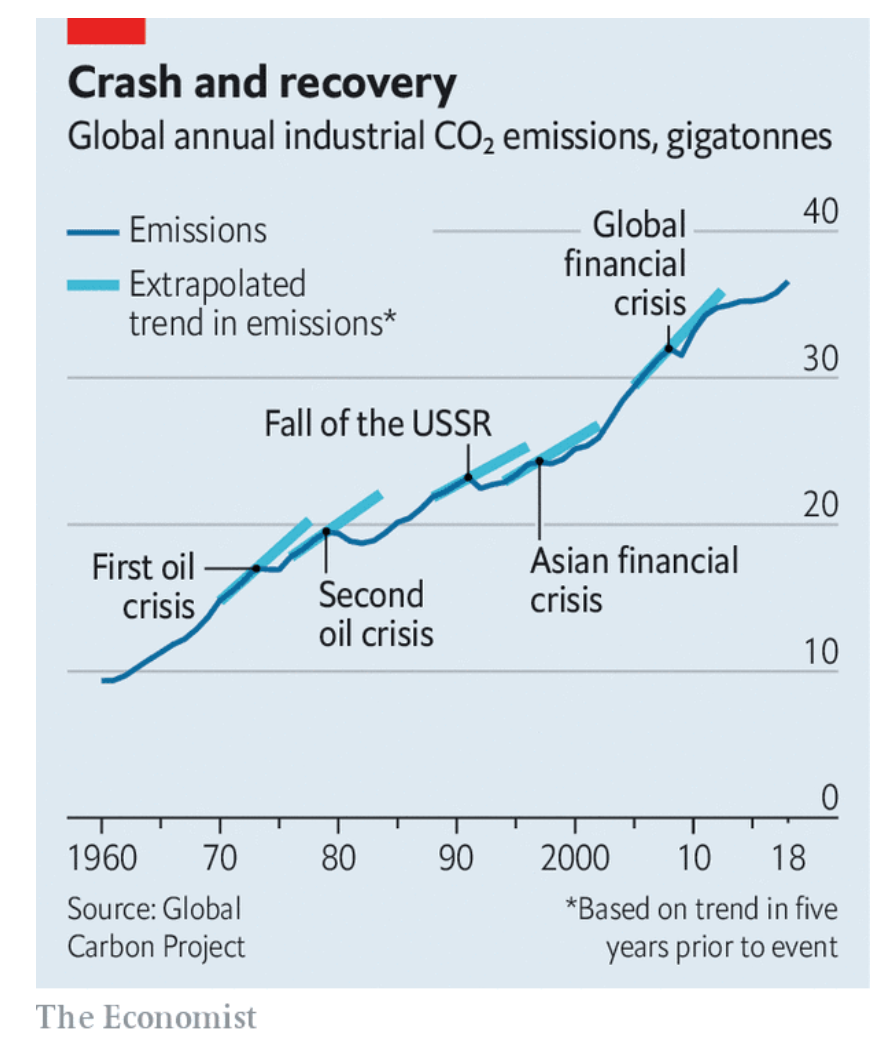Climate Crisis vs COVID-19: where is our conversation going?
- Alizée CCM

- May 6, 2020
- 4 min read
We have been talking in the past months, how our planet is healing during humans quarantine. We appreciated nature and animals been back to invade our streets; the pace of our lives turned to a slower and more human rhythm.
Pollution levels worldwide dropped significantly, water is running clearer. Cities in Europe and China breath again, in India people are seeing Himalayas outlines for the first time in decades.
在过去的几个月中,我们一直在谈论人们隔离使地球神奇地康复。 我们对自然和动物再次出现在街道感到惊喜。 我们的生活节奏变慢了,也更人性了。
全球污染水平显著下降,水源越来越干净;欧洲和中国的城市得以呼吸;在印度,人们数十年来第一次看到喜马拉雅山脉的轮廓。

But, what is really happening in terms of the climate crisis?
The unexpected situation we are living in has two explosive potentials for our future:
accelerating the process towards sustainability and renewable resources
dragging us towards a new exponential growth of emission.
Unfortunately, they both depend on geopolitical reasons, governments' measures to save their national economies, and the behavior of consumers.
然而,气候危机的变化到底怎么样呢?
我们所处的非常时期使我们的未来具有两个爆炸性的发展可能:
加快实现可持续发展和可再生资源的进程
新的排放呈指数型增长。
无可奈何的是,它们都取决于地缘政治因素,比如政府为挽救经济采取的措施以及消费者的行为。
Without being pessimistic, we have to jump back in 2008, when the last financial crisis took place, forcing governments to implement new measures to fight the economic emergency.
What happened is that, while we were all hoping to see green policies and investments, the alternatives moved towards fossil fuels resulting in 10 years of a spinning raise in carbon emissions.
并非作者悲观主义,可是当我们回溯到上一次金融危机发生的2008年,各国政府迫使采取新措施来应对经济危机时,尽管我们都希望看到绿色政策和投资,但替代品转向了化石燃料,导致碳排放量连续十年上升。

This is why, even though the planet is healing now, we can't let down our guard: the climate crisis is not a one-shot resolution, it won't solve with us stopping for a few months.
What is going to follow after this sanitary emergency is actually the crucial part of our fight, and it's a delicate matter that reveals to us how intricate it is. 这就是为什么即使地球现在正在康复,我们也不能放下心来:气候危机没有一时的解决方案,我们停了几个月生活并不是长久之计。
这场卫生紧急情况之后将要采取的行动实际上是我们战斗的关键部分,
这个细节说明气候危机复杂性不容小觑。

We can now see clearly how climate and social justice and welfare are intrinsically connected, and how we can't assume that they will adjust themselves accordingly.
How governments all over the world will act "green" in front of growing unemployment, financial and social crises is a primary concern.
Will we be able to find a responsive solution out of the crisis without hurting our planet irreversibly?
现在,我们可以清楚地看到气候和社会平等与福利之间如何存在着内在的联系,以及我们如何不能假设它们会进行自我调整。
首要问题是,世界各国政府如何在日益加剧的失业、金融和社会危机的情况下采取“绿色行动”。
我们是否能够在不对地球进行不可逆转的伤害的危机中,找到一个响应性解决方案?
Every country has different strategies and internal priorities.
What can we do as consumers to change the game actively?
Keep ourselves informed about green politics. Check what is your local government doing, ask questions, talk about it with your friends and colleagues.
Read the news and always be critic. Every piece is part of a broader picture. We can decide to learn only that one piece or to get the full story.
Talk with your friends from other countries. What happens in China, in Europe or in the USA can be different but we now know that we are not independent ecosystem.
We have great power as consumers: act accordingly. We can change the market with our demands. Isn’t that a great news?
What do you want to read more about? How do you feel about news recently?
Do you think that is important to keep up with climate policies?
每个国家都有自己的战略和优先。
作为积极改变游戏规则的消费者,我们能做什么呢?
随时了解绿色政治。 检查当地政府在做什么,提出问题,并与朋友和同事讨论。
阅读新闻,始终做一个批评家。 每一则新闻都可能拓展自己的视野。 我们可以决定只学习其中的一则或获得完整的故事。
与其他国家的朋友交谈。 在中国、欧洲或美国发生的事情可能有所不同,但我们现在知道我们没有独立分隔的生态系统。
作为消费者,我们拥有强大的力量:采取相应的行动。 我们可以根据需求改变市场。 这不是个好消息吗?
你想进一步了解什么? 您最近对新闻有何看法?
你认为了解气候政策重要吗?





Comments